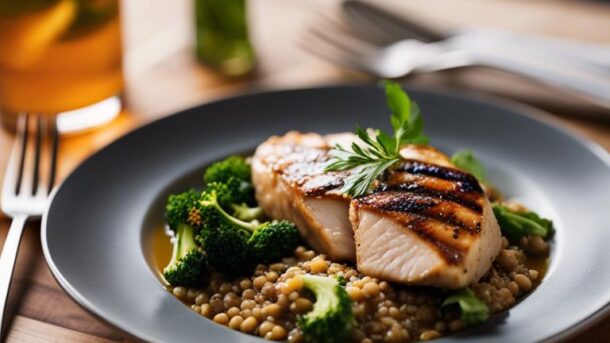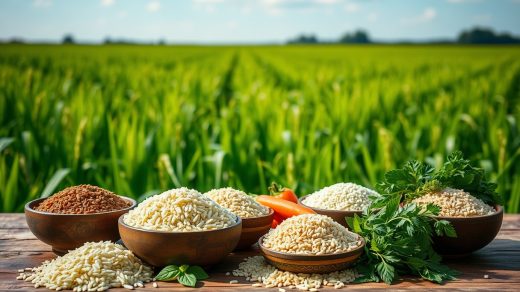Most of the time, when you sit down to enjoy your dinner, you want to make sure you are fueling your body with the right nutrients. A protein dinner can be a great way to ensure you are getting the vital building blocks your body needs to function at its best. From lean meats to plant-based options like tofu and legumes, there are plenty of delicious ways to incorporate protein into your evening meal. In this blog post, we will explore the benefits of a protein dinner and provide you with some tasty recipe ideas to try out for yourself.
Key Takeaways:
- Protein is Essential: Protein dinners are important as protein is vital for the growth and repair of tissues in the body.
- Diverse Protein Sources: Protein dinners can include a variety of sources such as lean meats, poultry, fish, tofu, legumes, and nuts.
- Satiety and Weight Management: Including protein in your evening meal can help keep you full, manage weight, and prevent excessive snacking.
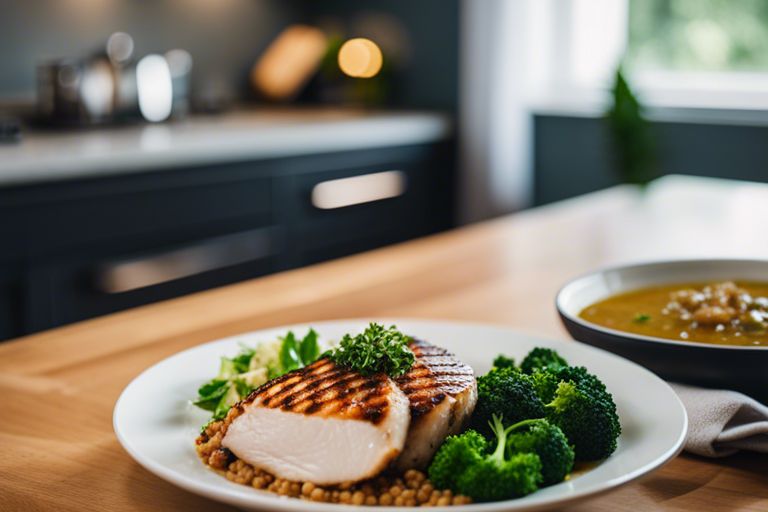
Defining Protein Dinner
While you may have come across the term “protein dinner,” it’s vital to understand what it truly means. A protein dinner is a meal that primarily focuses on incorporating protein-rich foods as the main source of nutrients. This type of dinner typically includes a variety of protein sources such as lean meats, poultry, fish, tofu, legumes, and dairy products.
The Concept of Protein-Rich Meals
An important aspect of protein dinners is ensuring that you are consuming an adequate amount of protein to support various bodily functions. Proteins are made up of amino acids, which are the building blocks of tissues, muscles, and organs in your body. Including a sufficient amount of protein in your meals helps with muscle repair, immune function, hormone production, and overall health.
Importance of Protein in Our Diet
One significant reason why protein is crucial in your diet is that it helps you feel full and satisfied after a meal. Unlike carbohydrates, protein takes longer to digest, keeping you feeling satiated for a more extended period. This can be particularly helpful if you are trying to manage your weight or avoid unhealthy snacking between meals.
This nutrient is also vital for maintaining and building muscle mass, especially for those who are physically active or looking to improve their fitness levels. Additionally, protein plays a vital role in supporting the growth and repair of tissues in your body, making it an indispensable part of a healthy diet.
Types of Protein Dinner
Any protein dinner can be a mix of animal and plant-based proteins, providing a well-rounded meal. Here are some common types of protein dinners:
Animal-Based Protein Sources
Protein from animal sources includes meat, poultry, fish, eggs, and dairy products. These foods are high in necessary amino acids, the building blocks of protein. Your protein dinner can include options like grilled chicken, salmon fillets, lean beef, or a serving of Greek yogurt.
Any protein dinner with animal-based sources can be a great way to get a complete protein profile and necessary nutrients like vitamin B12, iron, and zinc. It’s important to vary your sources to ensure you get a diverse range of nutrients in your meals.
Plant-Based Protein Sources
Sources of plant-based protein include legumes, nuts, seeds, tofu, tempeh, and whole grains. These foods are rich in fiber, antioxidants, and phytonutrients, making them beneficial for your overall health. Your protein dinner can feature options like lentil curry, quinoa salad, chickpea stew, or almond-crusted tofu.
Plant-based protein sources are typically lower in saturated fats and cholesterol, making them heart-healthy choices for your meals. Including a variety of plant-based proteins in your diet can also help reduce your carbon footprint and promote sustainability.
Combination of Both
Plant-based proteins can complement animal proteins in your protein dinner to create a balanced and nutritious meal. Including a mix of both sources can increase the diversity of nutrients in your diet, providing a range of vitamins, minerals, and antioxidants.
Plant-based proteins such as beans and lentils can add fiber and micronutrients to your meal, while animal proteins offer high-quality protein and necessary nutrients. Combining both sources in your protein dinner ensures you get a well-rounded and satisfying meal.
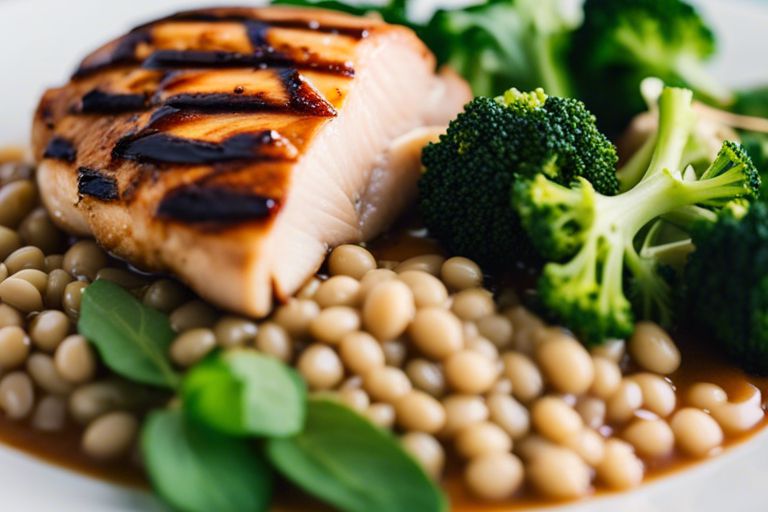
Benefits of Protein Dinner
Weight Management
Management of your weight is crucial for overall health and well-being. Including a protein-rich dinner in your diet can be beneficial for weight management. Proteins are known to be more satiating than carbohydrates or fats, which means they can help you feel full and satisfied for longer periods. By incorporating proteins into your dinner, you may reduce overall calorie intake throughout the day, aiding in weight loss or weight maintenance.
Muscle Growth and Repair
Management of muscle growth and repair is imperative for those looking to stay active and maintain a healthy lifestyle. Proteins are the building blocks of muscles, and consuming them at dinner can support muscle recovery and growth. Including protein sources like lean meats, poultry, fish, tofu, or legumes in your evening meal can provide your body with the necessary nutrients to repair and build muscle tissue.
With adequate protein intake at dinner, especially after a workout or physical activity, you can promote muscle recovery and enhance your body’s ability to repair and strengthen muscles.
Improved Satiety
Management of hunger and cravings can be challenging when trying to maintain a healthy diet. Choosing a protein-packed dinner can help improve satiety levels and prevent unnecessary snacking or overeating later in the evening. Proteins take longer to digest than carbohydrates, keeping you feeling full and satisfied, which can be beneficial for controlling overall calorie intake and supporting weight management goals.
Benefits of including protein in your dinner extend beyond just satiety; it can also help stabilize blood sugar levels, reduce cravings for unhealthy snacks, and support a more balanced and nutritious diet overall.
Planning a Protein Dinner
Once again, planning a protein dinner is imperative for ensuring you get the nutrients your body needs while enjoying a satisfying meal. By incorporating protein-rich foods into your dinner routine, you can create a balanced and delicious meal that will keep you sustained throughout the evening.
Meal Prep Strategies
Dinner can often be a hectic time, but with some meal prep strategies, you can make the process smoother and more efficient. Consider batch cooking your proteins, such as grilled chicken, tofu, or lentils, at the beginning of the week. This way, you can easily add them to salads, stir-fries, or wraps for a quick and protein-packed dinner.
Incorporating Protein-Rich Foods
With a variety of protein-rich foods to choose from, such as lean meats, seafood, beans, and dairy products, incorporating them into your dinner can be quite simple. Try to include at least one source of protein in your meal to help you feel full and satisfied. For a plant-based option, quinoa, chickpeas, or edamame can be excellent choices.
Balancing Macronutrients
Prep your dinner plate with a balance of macronutrients by incorporating protein, carbohydrates, and healthy fats. This balance can help stabilize your blood sugar levels and keep you energized throughout the evening. Bear in mind, portion control is key to ensuring you are getting the right amounts of each nutrient.
This approach to planning a protein dinner ensures that you are getting a well-rounded meal that will nourish your body and support your overall health and well-being.
Protein Dinner Ideas
Many delicious and nutritious options are available when it comes to crafting a protein-rich dinner. Whether you’re aiming for something quick and easy, looking for global inspirations, or seeking seasonal variations, there are endless possibilities to explore and enjoy.
Quick and Easy Recipes
On busy weeknights, you may not have much time to spend in the kitchen. Consider whipping up a simple grilled chicken salad, turkey lettuce wraps, or a protein-packed stir-fry with your favorite veggies. These meals are not only speedy to make but also satisfying and full of flavor.
Global Inspirations
One way to add excitement to your protein dinners is by drawing inspiration from cuisines around the world. Try making Greek souvlaki with tzatziki sauce, spicy Indian chickpea curry, or Japanese teriyaki salmon. Exploring different flavors and cooking styles can introduce new and delicious ways to incorporate protein into your diet.
It’s fascinating how various cultures have their unique approaches to preparing protein-rich meals. By incorporating international recipes into your dinner rotation, you can broaden your culinary horizons and discover a world of exciting flavors and ingredients.
Seasonal Variations
It’s necessary to adapt your protein dinners to the changing seasons to make the most of fresh, seasonal produce. In the summer, consider grilling lean cuts of meat or fish alongside vibrant vegetables. During the fall, hearty stews with beans and root vegetables can be a comforting and protein-packed option for chilly evenings.
Inspirations for seasonal variations can be found all around you, from the farmer’s market offerings to the seasonal specials at your favorite grocery store. Embracing the flavors of each season can elevate your protein dinners, making them not only delicious but also aligned with the natural rhythms of the year.
Another Subsection Title
Additional ideas for protein dinner variations could include incorporating plant-based proteins like tofu, tempeh, or legumes into your meals. These options provide a different nutritional profile while still offering a satisfying and protein-rich dining experience.
Common Misconceptions
Your journey to understanding protein dinners may come with some common misconceptions that can cloud your judgment. Let’s debunk these myths to set the record straight.
Debunking Protein Myths
Misconceptions about protein often revolve around animal sources being the only way to meet your protein needs. However, many plant-based foods like beans, lentils, quinoa, and tofu are excellent sources of protein. You don’t need to rely solely on meat to have a protein-rich meal.
Separating Fact from Fiction
An important aspect to consider in separating fact from fiction when it comes to protein dinners is understanding that protein is vital, but it’s not the only nutrient you need. A well-rounded meal should include a variety of nutrients like carbohydrates, fats, vitamins, and minerals to support your overall health and well-being.
Myths about protein being the sole focus of a meal can lead to imbalanced nutrition. Remember to prioritize diversity in your diet to ensure you’re getting all the vital nutrients your body needs to thrive.
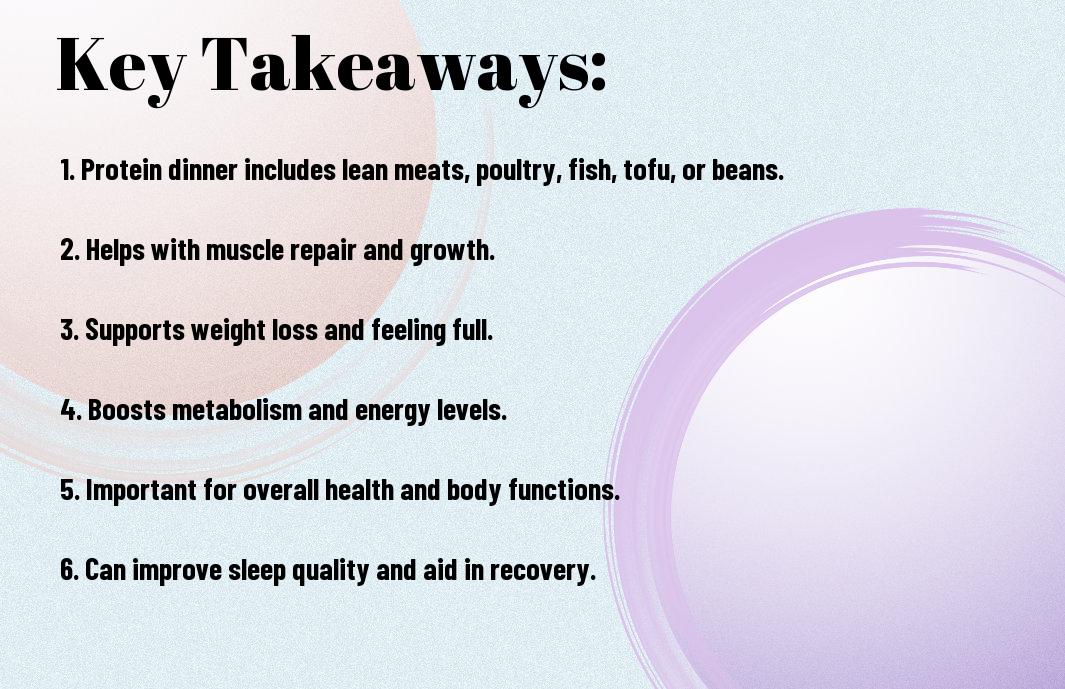
Final Words
Conclusively, understanding what constitutes a protein dinner can greatly enhance your overall health and well-being. By incorporating a balance of proteins, such as lean meats, fish, tofu, and legumes, into your evening meals, you can ensure that you are fueling your body with important nutrients to support muscle growth, repair, and overall function. Note, a protein dinner doesn’t have to be complicated or time-consuming; simple meals like grilled chicken with quinoa and roasted vegetables can provide all the protein your body needs.
Q: What is a protein dinner?
A: A protein dinner is a meal that is primarily focused on including foods that are high in protein. This can include various types of meat, poultry, seafood, tofu, tempeh, beans, lentils, and dairy products such as Greek yogurt and cottage cheese.
Q: Why is it important to have a protein dinner?
A: Protein is an necessary nutrient that plays a crucial role in building and repairing tissues, supporting immune function, and helping you feel full and satisfied. Having a protein-rich dinner can help you meet your daily protein needs, support muscle growth and repair, and aid in weight management by promoting satiety.
What are some examples of protein dinner options?
A: Some examples of protein dinner options include grilled chicken with roasted vegetables, salmon with quinoa and steamed broccoli, tofu stir-fry with brown rice, lentil soup with a side of salad, Greek yogurt parfait with nuts and fruit, and black bean tacos with avocado and salsa.
